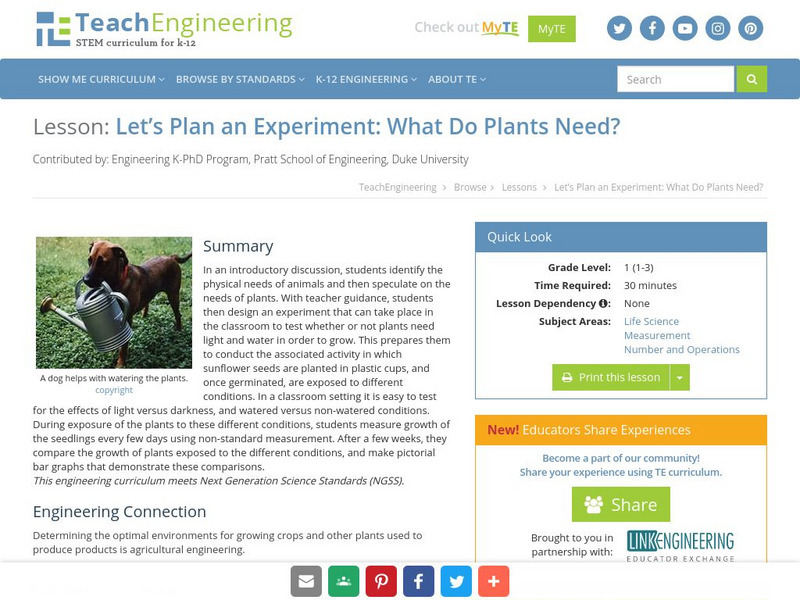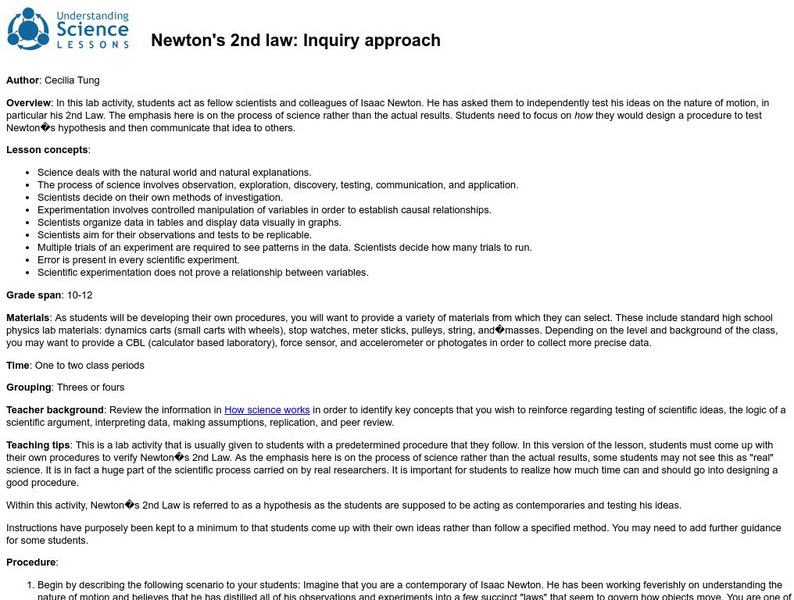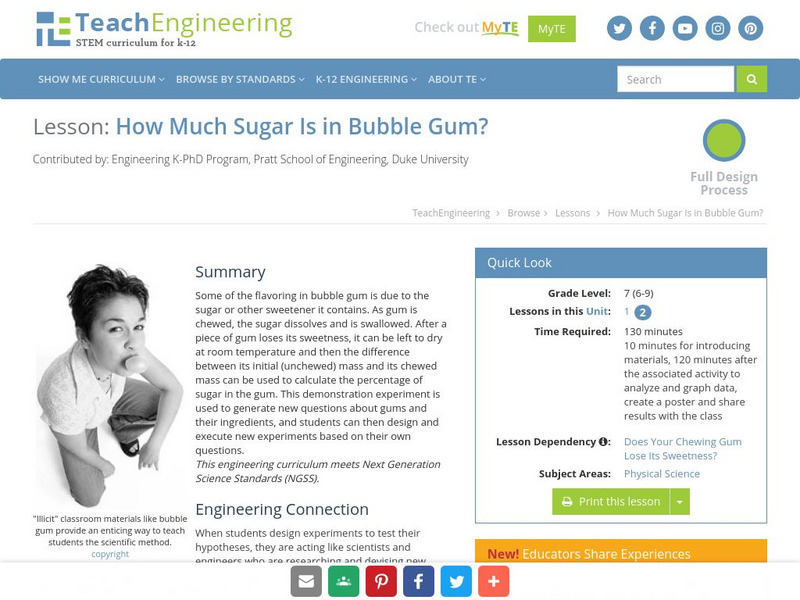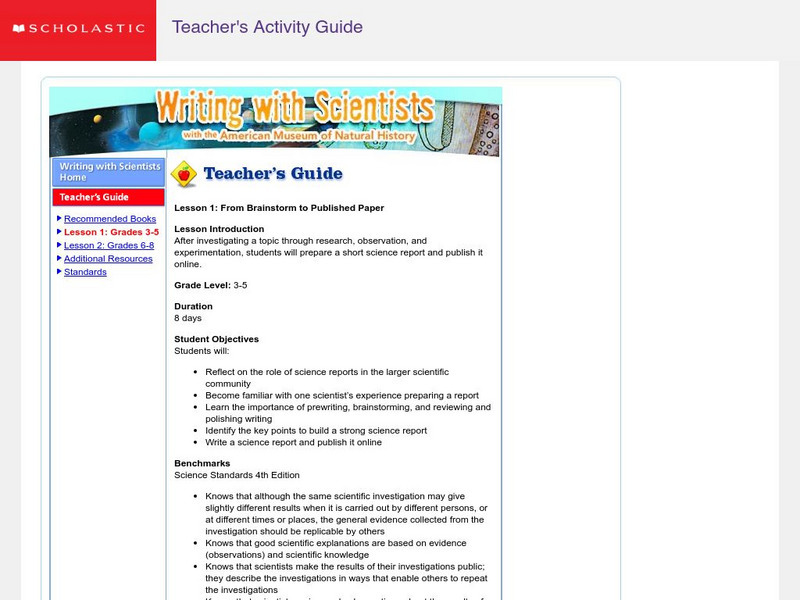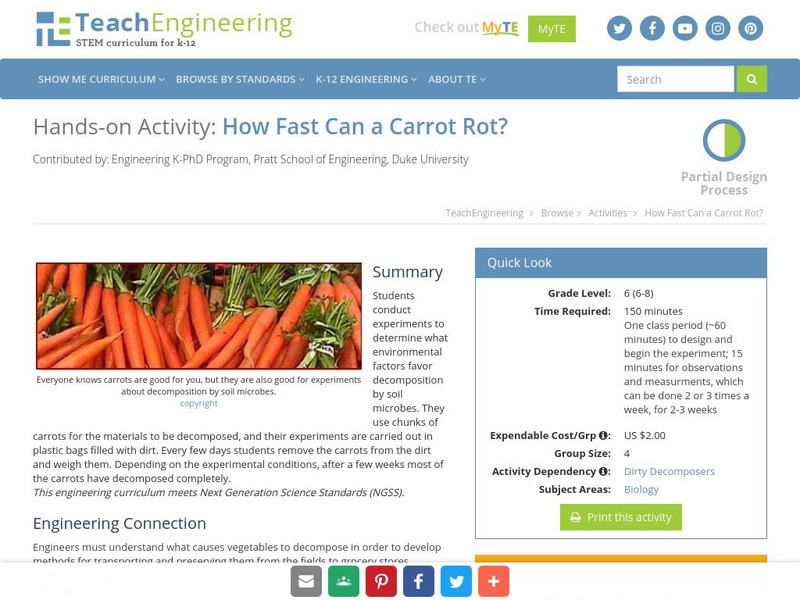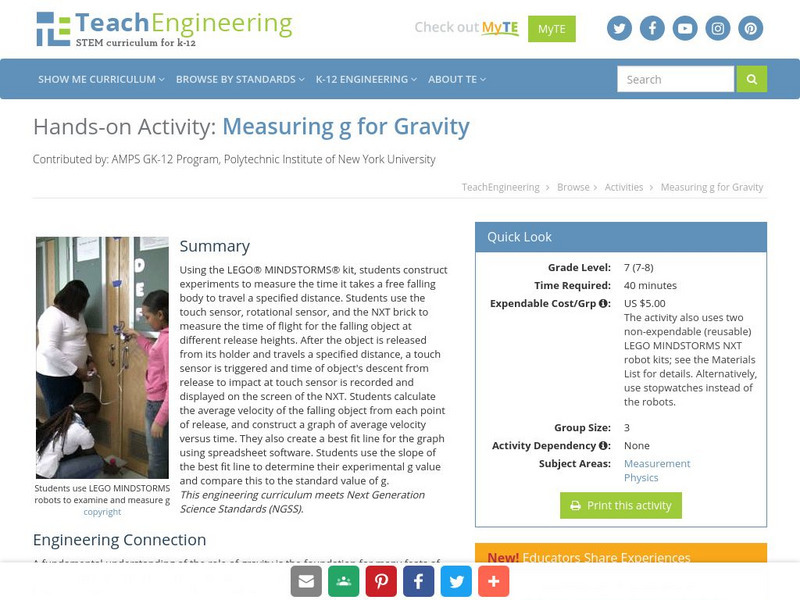TeachEngineering
Teach Engineering: Who Needs What?
The teacher leads a discussion in which students identify the physical needs of animals, and then speculate on the needs of plants. With guidance from the teacher, the students then help design an experiment that can take place in the...
TeachEngineering
Teach Engineering: Students as Scientists
This curricular unit contains two lessons that let students actually do the work of scientists as they design their own experiments to answer questions they generate. In the first lesson and its associated activity, students conduct a...
University of California
Understanding Science: Newton's 2nd Law: Inquiry Approach Lesson
For this lesson, students develop their own scientific experiment to test Newton's hypothesis that the acceleration of an object depends on the net force acting upon it and its mass. After completing their designed experiment, students...
TeachEngineering
Teach Engineering: How Much Sugar Is in Bubble Gum?
Most of the flavoring in gum is due to the sugar or other sweetener it contains. As gum is chewed, the sugar dissolves and is swallowed. After a piece of gum loses its flavor, it can be left to dry at room temperature and then the...
Science Buddies
Science Buddies: Build a Reed Switch Motor
After building a simple electric motor from a kit, with this experiment you can explore how voltage affects motor speed. The Science Buddies project ideas are set up consistently beginning with an abstract, objective, and introduction,...
Scholastic
Scholastic: Writing With Scientists
After students investigate a topic through research, hypothesizing, observing, and experimentating, teachers can use this lesson to help their students prepare short science reports and publish them online. The Writing with Scientists...
TeachEngineering
Teach Engineering: How Fast Can a Carrot Rot?
Students conduct experiments to determine what environmental factors favor decomposition by soil microbes. They use chunks of carrots for the materials to be decomposed, and their experiments are carried out in plastic bags filled with...
TeachEngineering
Teach Engineering: A Tasty Experiment
Students conduct an experiment to determine whether or not the sense of smell is important to being able to recognize foods by taste. They do this by attempting to identify several different foods that have similar textures. For some of...
TeachEngineering
Teach Engineering: Measuring G
Using the LEGO MINDSTORMS NXT kit, students construct experiments to measure the time it takes a free falling body to travel a specified distance. Students use the touch sensor, rotational sensor, and the NXT brick to measure the time of...
TeachEngineering
Teach Engineering: Dirty Decomposers
Learners design and conduct experiments to determine what environmental factors favor decomposition by soil microbes. They use chunks of carrots for the materials to be decomposed, and their experiments are carried out in plastic bags...
Science Education Resource Center at Carleton College
Serc: Effectiveness of Mn Dams in Water Retention
Through this field activity, students will obtain hands-on experience by measuring stream flows and observing landform and stream processes of dams once before water freezes, and again after the weather deposition has occurred. Students...
